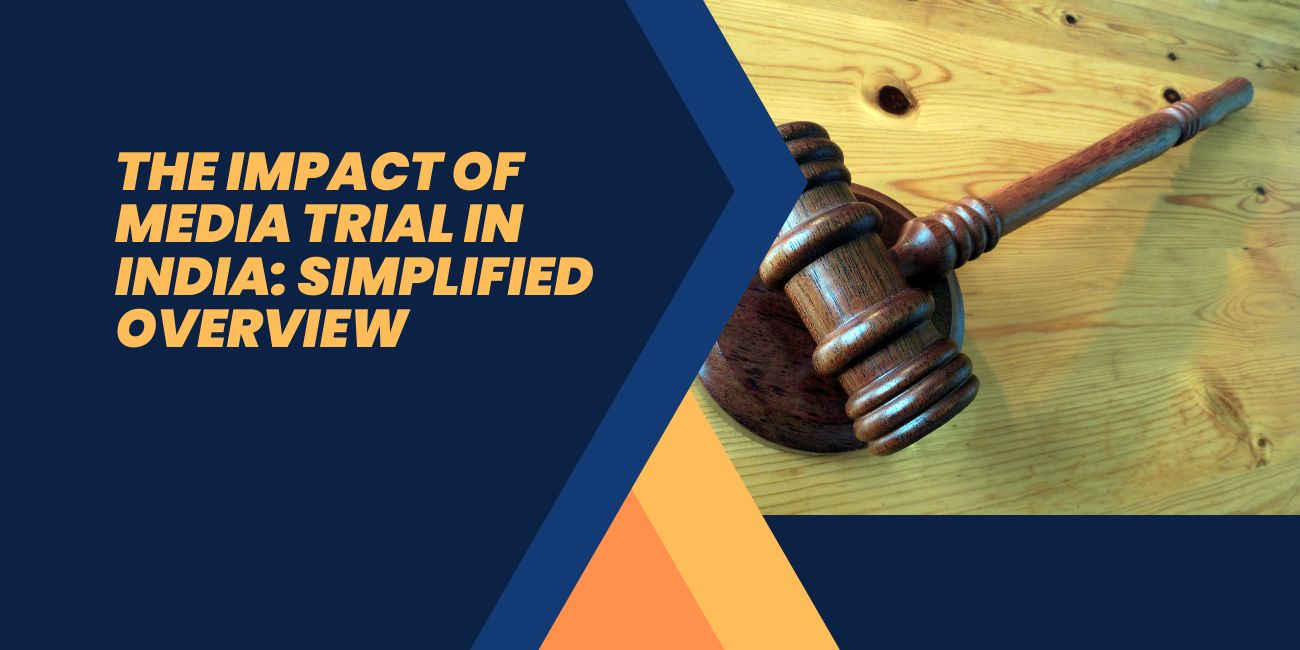
Introduction:
Media trial, also known as trial by media, refers to the intense media coverage and sensationalization of a criminal case or an ongoing investigation before it is presented in a court of law. In India, media trial has become a common occurrence, and its impact on the country’s legal system and society has been a subject of much debate. In this article, we will explore the effects of media trial in India in simple English language.
Sensationalization and Bias:
Media trials often sensationalize and dramatize cases, leading to the distortion of facts and presenting a biased view. As a result, the public may form premature opinions about the guilt or innocence of the accused, influencing the fair trial process.
Prejudice and Prejudgment:
With the constant media coverage and biased reporting, there is a risk of prejudicing the minds and influencing the judges. This can hinder the accused’s right to a fair trial and may impact the outcome of the case.
Privacy and Dignity:
Media trials often invade the privacy and dignity of the accused, victims, and their families. Publishing personal details and speculative information can cause irreversible damage to their lives, even if they are proven innocent later.
Media Responsibility:
While the media plays a crucial role in informing the public, it also bears the responsibility to adhere to ethical standards. Responsible reporting includes presenting verified facts, avoiding sensationalism, and respecting the sub-judice principle until the court delivers a verdict.
Impact on Investigation:
Excessive media attention can also impact the investigation process. It may lead to witnesses being influenced; evidence tampering, or even the accused going into hiding, making it difficult for law enforcement agencies to conduct a fair investigation.
Trial by Public Opinion:
Media trials create a trial by public opinion, where public sentiment and social media discussions can influence the outcome of the case. This phenomenon undermines the principle of justice, which should be based on evidence and legal proceedings.
Challenges to the Legal System:
Media trials pose challenges to the legal system, as it becomes difficult to deviate from the popular version of opinion and ensure an unbiased trial. The judiciary may also face pressures and criticism from the public, affecting its independence and credibility.
Conclusion:
The impact of media trials in India is a complex issue with both positive and negative consequences. While media can serve as a powerful tool for raising awareness and demanding accountability, it should exercise caution and responsibility. Balancing freedom of the press with the right to a fair trial is crucial to preserving the integrity of the legal system and safeguarding individual rights. As responsible citizens, we must be critical consumers of media information and encourage fair and unbiased reporting to ensure justice for all.
If you want to be a judicial officer and are looking for RJS coaching in Jaipur, here, at Jyoti Judiciary we provide comprehensive study material to make your preparation solidified and top-notch. From preliminary mock tests to main answer writing sessions every material required for clearing the exam is provided. We have separate legal current affairs classes, legal general knowledge, and current affairs classes all in one-time enrolment. Hurry up.









